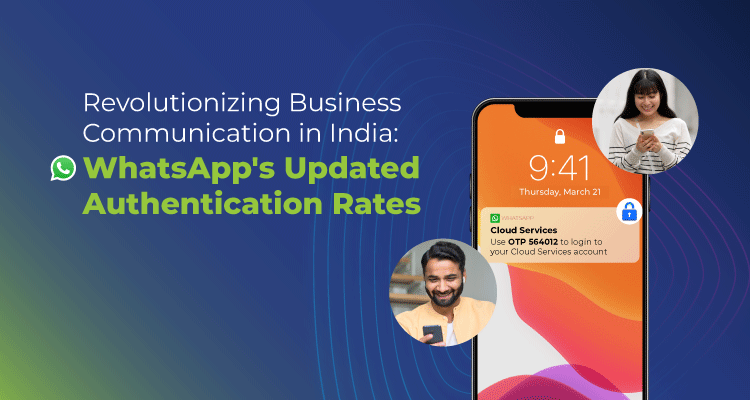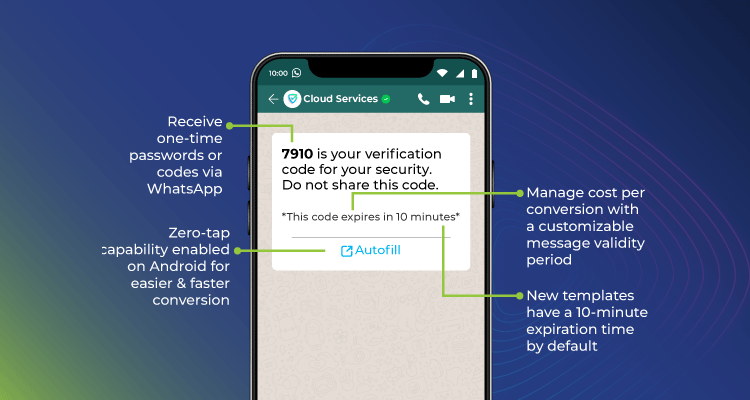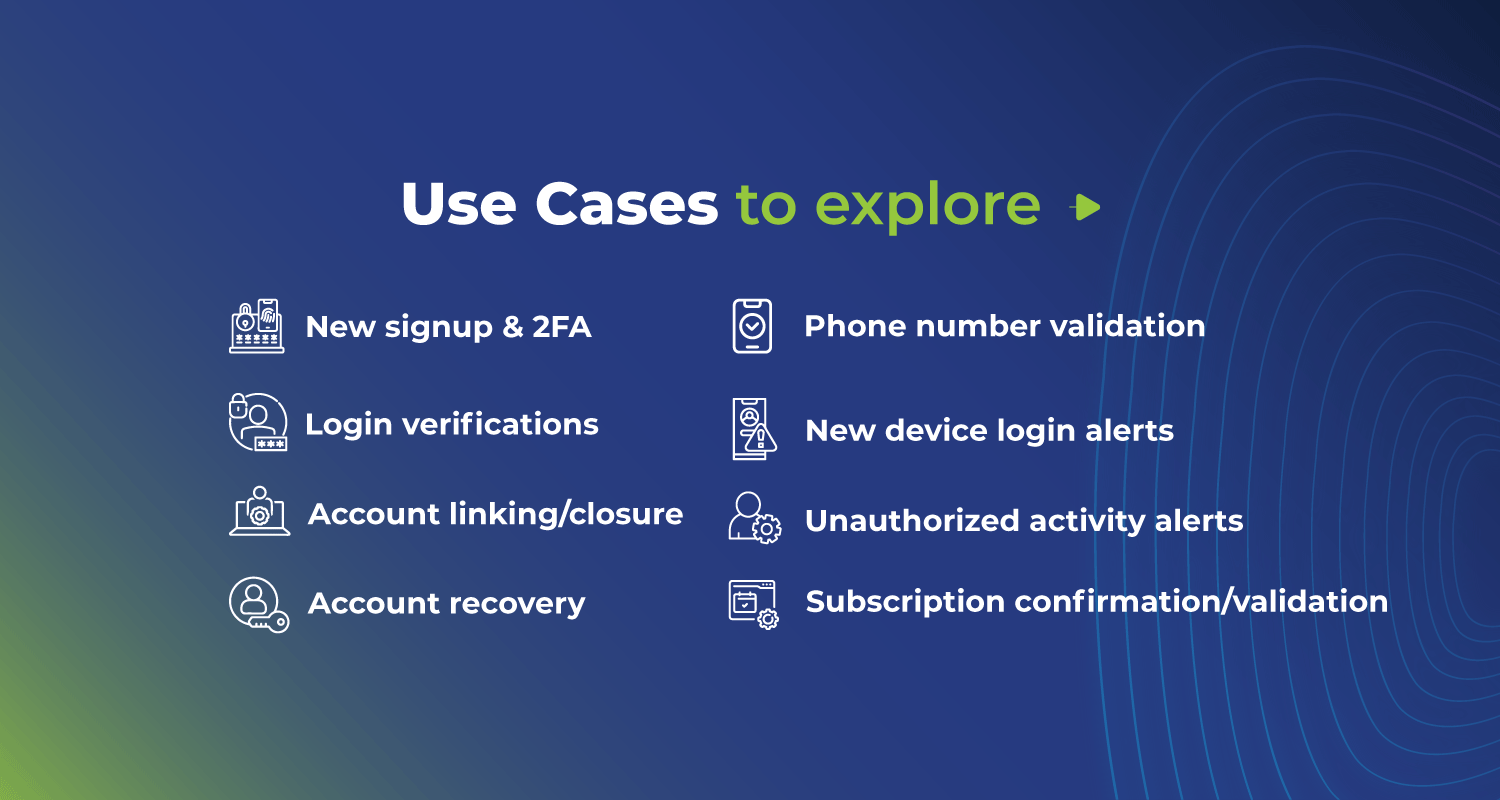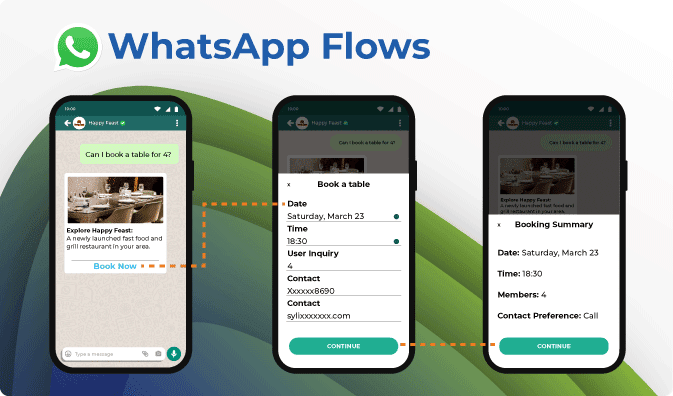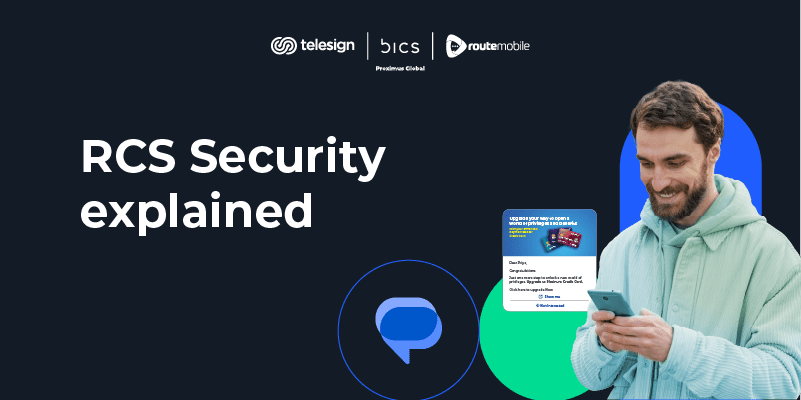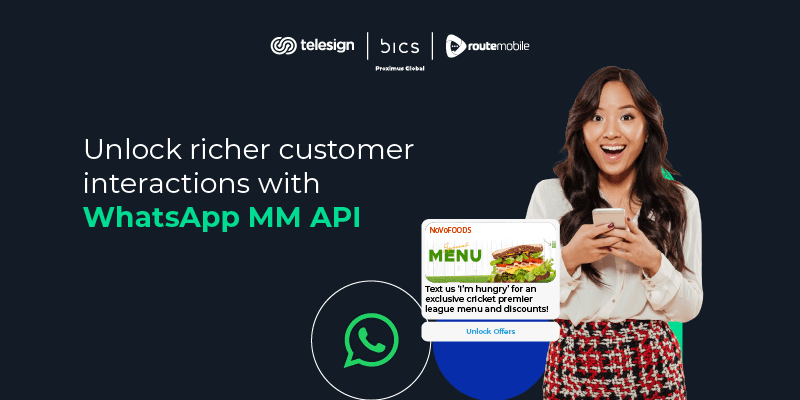In a significant move, WhatsApp has announced a major update to its messaging rates for businesses, with a focus on authentication and verification messages (OTP). This pivotal shift in the digital communication landscape is set to revolutionize the way businesses in India interact with their customers for authentication purposes. Here, we explore the implications of updates on authentication WhatsApp Business templates and offer insights on how businesses can adapt to this change for enhanced communication and verification processes.
Table of Contents:
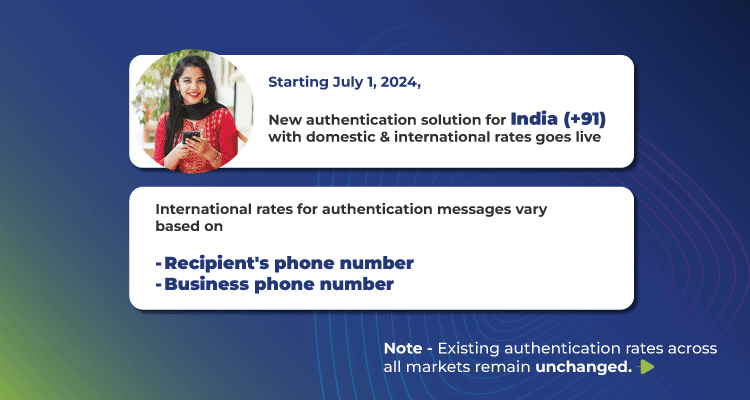
Overview of WhatsApp’s New Authentication Rates
Starting from July 1, 2024, WhatsApp will implement a new pricing structure for authentication messages in India, setting the rate at INR 0.11 (11 paise) per message. This competitive pricing aims to reflect the valuable features of WhatsApp’s authentication solution and align with industry standards.
WhatsApp has revised its pricing to reflect the enhanced value offered by its authentication solution’s new bundled features, aiming to match current industry benchmarks. With the introduction of a “Customizable message validity period” and “Zero-tap capability”, the update seeks to elevate the user experience. This, in turn, enables companies to efficiently monitor authentication expenses while boosting conversion rates.
Authentication-International rate applies for Indonesia as of June 1, 2024, and India as of July 1, 2024.

Key Features of WhatsApp’s Authentication Solution
- Customizable Message Validity Periods: Businesses can set the validity period for authentication messages, enhancing the relevance and efficiency of their communication.
- Zero-Tap Capability on Android: This feature simplifies the user experience by allowing users to authenticate without leaving the WhatsApp interface, potentially increasing conversion rates.
Ensuring Higher Deliverability of Authentication Messages
Importance of Deliverability
Authentication messages are crucial for validating user actions, such as payment confirmations and two-factor authentication. Ensuring these messages are delivered promptly and reliably is essential to prevent unauthorized access and avoid transaction failures.
WhatsApp’s Role in Improving Deliverability
WhatsApp’s authentication messages can significantly improve deliverability rates. While WhatsApp alone cannot guarantee 100% deliverability due to its dependency on internet connectivity and user registration on the platform, it offers a strong alternative to SMS.
This hybrid approach ensures that messages have the highest chance of being delivered, regardless of the recipients’ internet connectivity or their registration on specific platforms.
Implementing a Cross-Channel Failover Protocol
To achieve near-perfect deliverability, businesses can implement a cross-channel failover protocol, utilizing both SMS and WhatsApp. This approach requires backend engineering to monitor message delivery and switch channels if the primary one fails.
For instance, imagine a banking institution that needs to send out urgent transaction alerts to its customers. With Route Mobile’s solution, the bank initially attempts to send these alerts via WhatsApp, leveraging the platform’s rich media capabilities for a more interactive and informative experience. This method is especially effective for customers who are online and prefer WhatsApp for its ease of use and comprehensive features.
However, should the WhatsApp message fail to deliver—perhaps due to the recipient not using the app or facing connectivity issues—Route Mobile’s system automatically reverts to sending the alert through SMS. This fallback mechanism ensures that the message reaches the customer one way or another, maintaining the flow of critical information without any action required from the sender’s side.
This dual-channel approach not only maximizes deliverability rates but also caters to customer’s preferences and situations, making Route Mobile a valuable partner for businesses targeting a seamless communication strategy.
Leveraging WhatsApp’s Authentication Features & Applications
Steps for Businesses
To make the most of WhatsApp’s new authentication rates, businesses should:
- Review Existing Authentication Processes: Assess current methods and identify areas for improvement.
- Ensure Technical Readiness: Prepare for API integration and backend adjustments.
- Navigate Legal and Compliance Aspects: Ensure compliance with user data and consent regulations
- Update Communication Strategies: Incorporate WhatsApp alongside SMS for sending authentication messages.
The Future of Authentication in India
As WhatsApp continues to innovate, the digital communication landscape in India is poised for significant change. Future enhancements to WhatsApp’s authentication services will likely further disrupt traditional methods, leading to more secure, efficient, and user-friendly verification processes. This shift signals a broader move towards integrated communication solutions, enhancing digital security and business operations.
Conclusion
WhatsApp’s announcement of new authentication rates marks a transformative moment for business communications in India. By offering a cost-effective and user-friendly alternative to traditional SMS, WhatsApp is set to redefine authentication processes. Businesses should reassess their communication strategies to leverage this opportunity, enhancing customer engagement, improving verification processes, and driving better business outcomes. For more information on Authentication template messaging,Talk to our experts
